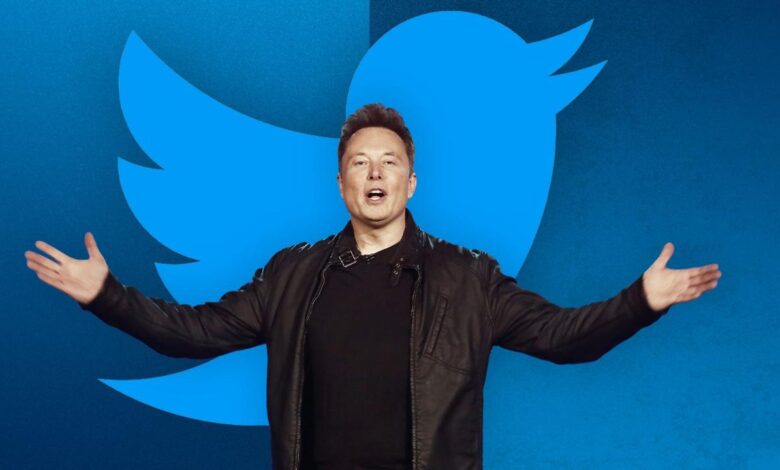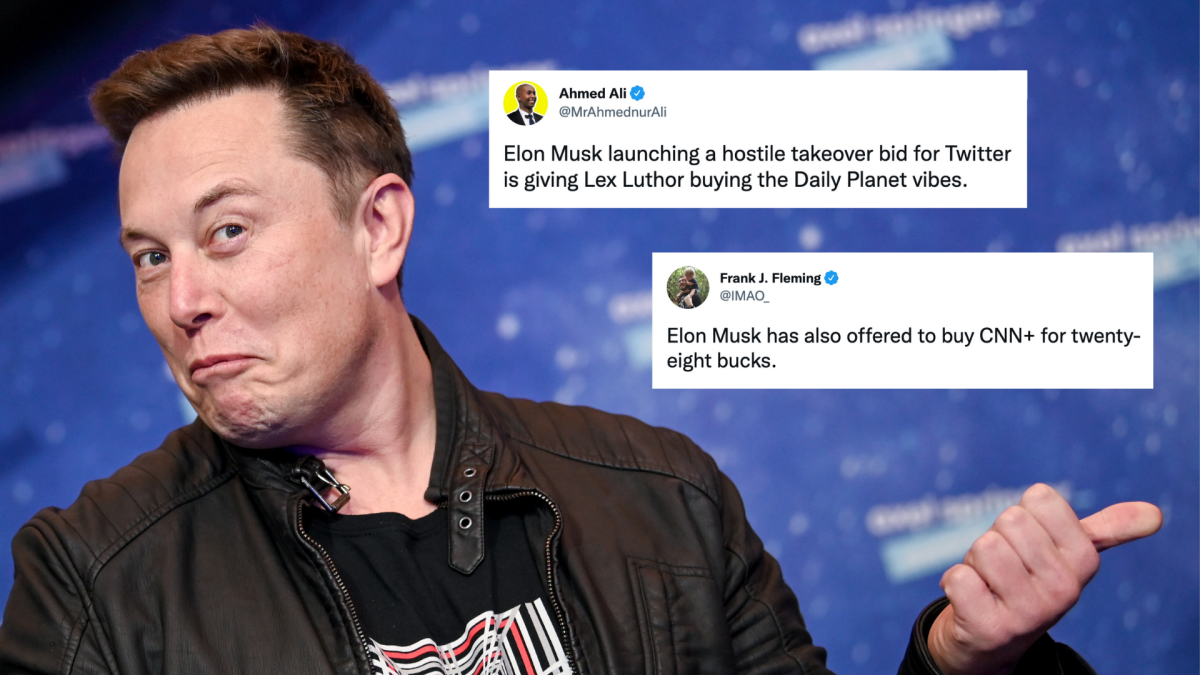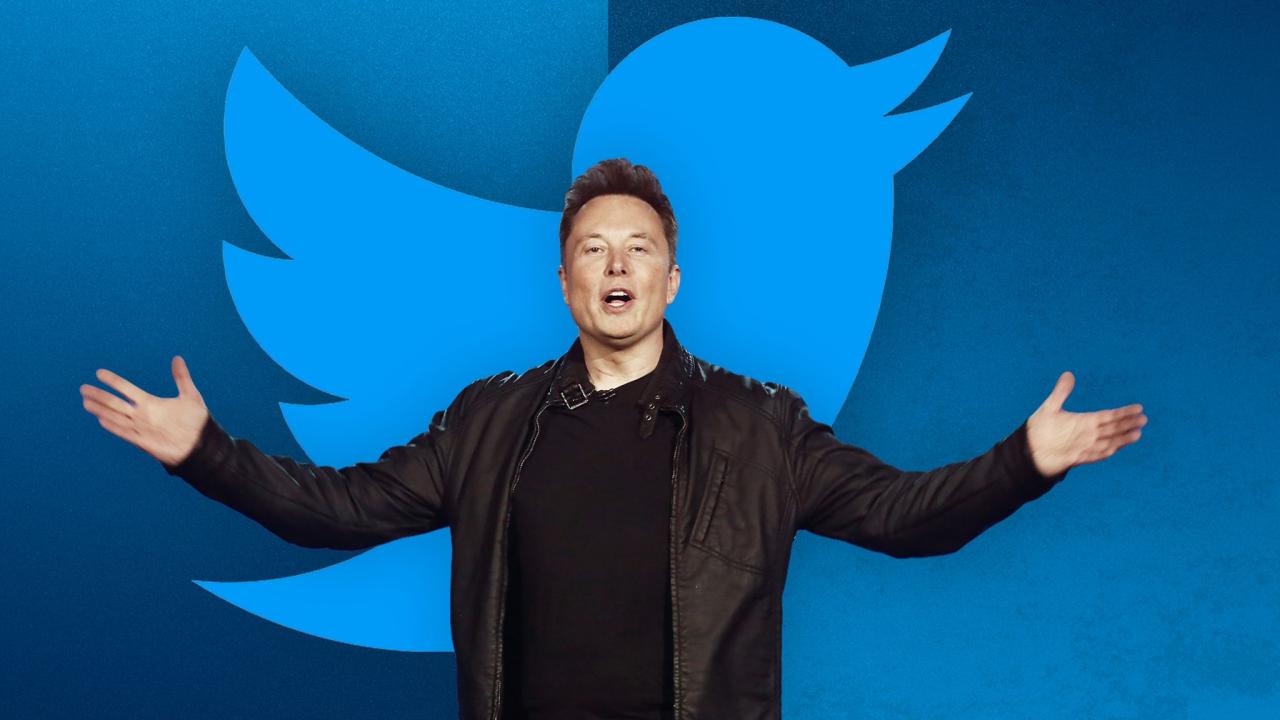
Musks Twitter Deal: Recklessness Costs Over a Billion
Musk wants out of twitter deal but his recklessness will cost more than a billion dollars – Musk wants out of the Twitter deal, but his recklessness will cost more than a billion dollars. This saga, a tale of ambition, legal battles, and potential financial ruin, has captivated the tech world and left many wondering about the future of both Musk and Twitter.
The billionaire entrepreneur, known for his audacious ventures, made a $44 billion offer to buy the social media giant, only to later attempt to back out. This abrupt change of heart triggered a legal battle with Twitter, which is seeking to force Musk to complete the acquisition.
The potential consequences of this deal falling through are far-reaching, with implications for Twitter’s stock price, Musk’s other businesses, and even the future of social media itself.
The controversy surrounding the Twitter deal has highlighted Musk’s impulsive nature and his willingness to take risks, even if those risks have significant financial implications. While his ventures have often resulted in remarkable success, this situation raises questions about whether his “recklessness” could ultimately lead to his downfall.
The legal battle between Musk and Twitter is a fascinating case study in the complexities of modern business deals and the potential consequences of bold, but ultimately misguided, decisions.
Musk’s Twitter Deal Withdrawal
Elon Musk’s attempt to back out of his $44 billion acquisition of Twitter sent shockwaves through the tech world and beyond. The billionaire entrepreneur, known for his audacious ventures and controversial pronouncements, cited concerns about the platform’s prevalence of spam accounts as the primary reason for his withdrawal.
This decision triggered a legal battle between Musk and Twitter, ultimately culminating in a protracted court case that exposed the intricacies of the deal and its implications for both parties.
The Legal Battle
Twitter, determined to hold Musk to his commitment, sued him in Delaware Chancery Court, seeking to force him to complete the acquisition. Musk, in turn, countersued, alleging that Twitter had breached the merger agreement by misrepresenting the number of fake accounts on its platform.
The legal battle was intense, with both sides presenting evidence and arguments in support of their respective positions.
Musk’s Twitter deal fallout is a reminder that reckless moves can have hefty consequences. While he’s trying to back out, the cost of his gamble is already exceeding a billion dollars. Meanwhile, in the world of fine wine, a wine producer who put ultra premium rose on the map is now taking another leap for terroir expression , proving that calculated risks can lead to rewarding outcomes.
Maybe Musk could learn a thing or two about measured progress from the wine industry. His Twitter adventure might be a costly lesson in the importance of careful planning and execution.
The Financial Implications
The potential financial implications of the deal falling through were significant. Twitter, facing a decline in its stock price and uncertainty about its future, was left in a precarious position. Musk, on the other hand, risked facing a hefty financial penalty if he was forced to complete the acquisition.
The legal battle, with its unpredictable outcome, created a climate of uncertainty for both parties.
Impact on Twitter’s Stock Price
Musk’s initial offer to acquire Twitter at $54.20 per share had sent the company’s stock price soaring. However, his subsequent attempts to withdraw from the deal led to a significant decline in Twitter’s share price. The volatility in Twitter’s stock price reflected the market’s uncertainty about the future of the company and the potential outcome of the legal battle.
Musk’s Reclessness and its Cost

Elon Musk’s decision to back out of the Twitter deal has sent shockwaves through the tech world, raising serious questions about his judgment and the potential consequences for his other ventures. While Musk claims his decision was driven by concerns over the prevalence of spam and fake accounts on the platform, the move appears to be a calculated gamble that could have significant repercussions.
The Factors Contributing to Musk’s Reclessness
The factors contributing to Musk’s “recklessness” in the Twitter deal are complex and multifaceted.
- One prominent factor is Musk’s tendency to make impulsive decisions, often without fully considering the potential ramifications. This was evident in his initial offer to buy Twitter, which was announced without any prior due diligence or negotiation.
- Another factor is Musk’s apparent lack of understanding of the complexities of running a social media platform. His pronouncements about combating spam and fake accounts, while well-intentioned, were naive and unrealistic. He failed to recognize the technical and logistical challenges involved in addressing these issues.
Musk’s attempt to back out of the Twitter deal is a prime example of recklessness, and it’s going to cost him a pretty penny. While he’s busy with his legal battles, it’s heartwarming to see organizations like Ripple Effects stepping up to support those who need it most.
They’re offering access to their Educator Ally Program, aimed at providing teachers with the resources they need to address their social-emotional needs. It’s a reminder that even amidst the chaos of the tech world, there are still people dedicated to making a positive impact on the world.
Musk’s Twitter debacle might be a billion-dollar mistake, but hopefully, it won’t overshadow the good work being done by organizations like Ripple Effects.
- Musk’s overconfidence and his belief that he can solve any problem with enough money and technology have also contributed to his recklessness. He seems to have underestimated the challenges of integrating Twitter into his existing business empire and the potential backlash from users, advertisers, and regulators.
The Potential Consequences of Musk’s Actions for his Other Businesses
Musk’s actions in the Twitter deal have already had a negative impact on his other businesses, including Tesla and SpaceX.
- Tesla’s stock price has plummeted since Musk announced his intention to buy Twitter, as investors have become concerned about his distraction and potential financial strain. This has also impacted the company’s valuation and its ability to attract investors.
- SpaceX, too, has been affected by Musk’s Twitter debacle. The company’s launch schedule has been disrupted, and its ability to attract talent has been hampered. This is particularly concerning as SpaceX is facing intense competition from other space exploration companies.
Musk’s Behavior in This Situation Compared to Past Business Ventures
Musk’s behavior in the Twitter deal stands in stark contrast to his past business ventures, where he has typically demonstrated a more cautious and strategic approach.
- In the early days of Tesla, Musk was known for his meticulous attention to detail and his willingness to put in long hours to ensure the company’s success. He also carefully managed the company’s finances and avoided taking on unnecessary risks.
- SpaceX, too, was built on a foundation of careful planning and execution. Musk meticulously selected his team, developed a detailed roadmap for the company’s growth, and secured funding from a diverse range of investors.
Potential Reputational Damage Caused by Musk’s Actions
Musk’s actions in the Twitter deal have also caused significant reputational damage, both to himself and to his companies.
- Many people now view Musk as a reckless and impulsive businessman, prone to making rash decisions without fully considering the consequences. This perception could make it difficult for him to attract investors, partners, and talented employees in the future.
- Tesla and SpaceX, too, have been tarnished by Musk’s behavior. They are now seen as companies that are vulnerable to the whims of a single individual, which could undermine their long-term growth and profitability.
Twitter’s Future in the Aftermath

Musk’s decision to back out of the Twitter acquisition deal has left the platform in a state of uncertainty. The abrupt withdrawal has cast a shadow over Twitter’s future, raising questions about its financial stability, user growth, and overall direction.
While the immediate impact might be unclear, the long-term implications are likely to be significant.
Twitter’s Challenges in the Absence of Musk
The absence of Musk’s involvement presents Twitter with a multitude of challenges. The most immediate concern is the potential loss of revenue and user growth. Musk’s acquisition was expected to bring significant financial resources and strategic expertise to Twitter, which has been struggling to maintain profitability and compete with other social media platforms.
The deal’s failure leaves Twitter vulnerable to further financial strain and potential competition from rivals like Meta and TikTok.Twitter also faces the challenge of maintaining user engagement and trust. Musk’s proposed changes, including the removal of bots and the introduction of new features, were anticipated to enhance user experience and attract new users.
However, the withdrawal of the deal has left these plans in limbo, potentially impacting user confidence and engagement.
Potential Strategies for Twitter
In the wake of Musk’s withdrawal, Twitter needs to adopt a strategic approach to navigate the challenges ahead. Here are some potential strategies:
- Focus on core strengths:Twitter should focus on its strengths, such as its real-time news and information dissemination capabilities. It can leverage these strengths to attract users seeking quick updates and insights on current events.
- Enhance user experience:Twitter can invest in improving its user interface and user experience, making the platform more intuitive and engaging. This includes addressing issues like spam, misinformation, and harassment, which have plagued the platform for years.
- Explore new revenue streams:Twitter needs to explore new revenue streams beyond traditional advertising. This could include subscriptions, premium features, or partnerships with businesses and organizations.
Hypothetical Timeline of Events for Twitter, Musk wants out of twitter deal but his recklessness will cost more than a billion dollars
It’s impossible to predict the future with certainty, but here’s a hypothetical timeline of events for Twitter following Musk’s withdrawal:
- Short-term (next 6-12 months):Twitter faces a period of uncertainty and instability. The platform may see a decline in user engagement and revenue, and its stock price could continue to fluctuate.
- Mid-term (12-24 months):Twitter may undergo a period of restructuring and reorganization. The company could explore new leadership, strategic partnerships, or acquisitions to enhance its position in the market.
- Long-term (24+ months):Twitter’s future will depend on its ability to adapt and innovate. The platform will need to address its challenges and find new ways to engage users and generate revenue.
Legal Implications and Potential Outcomes: Musk Wants Out Of Twitter Deal But His Recklessness Will Cost More Than A Billion Dollars
The Twitter-Musk saga has taken an unexpected turn, with Musk attempting to back out of his $44 billion acquisition deal. This move has ignited a legal battle, raising crucial questions about the implications of such a high-profile dispute and its potential impact on future business deals.
Legal Arguments Presented by Both Sides
Both Twitter and Musk have presented compelling legal arguments to support their respective positions. Twitter argues that Musk is obligated to complete the acquisition agreement, citing his breach of contract by refusing to fulfill the terms of the deal. They point to the merger agreement, which Artikels specific conditions and obligations for both parties, including Musk’s commitment to acquiring Twitter for the agreed-upon price.
Musk, on the other hand, claims that Twitter misrepresented the number of bot accounts on its platform, a key factor influencing his decision to buy the company. He argues that this misrepresentation constitutes a material breach of the merger agreement, justifying his withdrawal from the deal.
He also alleges that Twitter violated the agreement by failing to provide him with adequate information about the number of bot accounts, further bolstering his case.
Potential Outcomes of the Legal Battle
The outcome of the legal battle between Twitter and Musk hinges on the court’s interpretation of the merger agreement and the evidence presented by both parties.
- If the court rules in favor of Twitter, Musk could be forced to complete the acquisition at the agreed-upon price. This would require him to pay the remaining $36 billion to acquire the company, as he has already paid a $1 billion deposit.
Musk’s attempt to back out of the Twitter deal is a classic case of reckless ambition. It’s a gamble that could cost him over a billion dollars, and that’s just the financial fallout. Meanwhile, on a completely different note, a species of Galapagos tortoise thought to be extinct for a century has been rediscovered alive! Read more about this amazing discovery here.
It’s a reminder that even in the face of seemingly insurmountable odds, hope can persist. Back to Musk, it’s clear he’s facing a tough battle, but the financial repercussions of his actions will be a heavy burden to bear.
- Alternatively, if the court sides with Musk, he could be released from the acquisition agreement. This outcome would likely result in a significant financial loss for Twitter, potentially leading to a decline in its stock price and a loss of investor confidence.
- A third possibility is that the court reaches a negotiated settlement, where both parties agree to a compromise. This could involve a reduced acquisition price, a renegotiated agreement, or other terms that satisfy both sides.
Implications of the Case for Future Business Deals
The Twitter-Musk case has significant implications for future business deals, particularly in the technology sector. The outcome of the legal battle will set a precedent for future merger and acquisition agreements, potentially influencing the way these deals are structured and negotiated.
- The case highlights the importance of clear and unambiguous contractual language, particularly when dealing with complex transactions involving large sums of money.
- It emphasizes the need for thorough due diligence and accurate representations in merger agreements, as any misrepresentation or breach of contract could have significant legal consequences.
- The case also raises questions about the role of social media platforms in influencing business decisions, particularly in the context of mergers and acquisitions.
Key Legal Arguments and their Potential Impact
The following table Artikels the key legal arguments presented by both sides and their potential impact on the outcome of the case:
| Legal Argument | Presented By | Potential Impact |
|---|---|---|
| Breach of Contract | Musk could be forced to complete the acquisition. | |
| Material Misrepresentation | Musk | Musk could be released from the acquisition agreement. |
| Failure to Provide Adequate Information | Musk | Musk could be released from the acquisition agreement. |
Public Perception and Social Media Impact
Musk’s attempt to back out of the Twitter deal ignited a firestorm of public opinion, sparking widespread debate and scrutiny. The situation significantly impacted the perception of both Musk and Twitter, with social media playing a pivotal role in shaping the narrative.
Public Sentiment Towards Musk and Twitter
The public reaction to Musk’s attempt to withdraw from the deal was largely negative, with many criticizing his actions as reckless and self-serving.
- Social media platforms became a battleground for opposing views, with many users expressing their disappointment and anger towards Musk.
- Twitter users, in particular, voiced their concerns about the potential impact of Musk’s withdrawal on the platform’s future and its commitment to free speech.
- Meanwhile, Musk’s supporters defended his actions, arguing that he was justified in backing out due to Twitter’s alleged failure to provide accurate data about spam accounts.
This polarized public opinion, creating a highly charged environment where both sides fiercely defended their positions.
Social Media’s Role in Shaping the Narrative
Social media platforms like Twitter, Facebook, and Reddit played a significant role in shaping the narrative surrounding the deal.
- The constant flow of news and commentary on these platforms kept the issue in the public eye, amplifying its impact and influencing public opinion.
- The use of hashtags, memes, and trending topics further fueled the conversation, making it more accessible and engaging for a wider audience.
- Social media also provided a platform for experts, analysts, and legal professionals to share their insights and opinions, adding further layers of complexity to the narrative.
This constant stream of information and commentary contributed to the intense public scrutiny and debate surrounding the deal.
Illustrating Public Sentiment
A hypothetical graphic illustrating public sentiment towards Musk and Twitter during this period could be a bar chart with two bars, one representing Musk and the other representing Twitter.
- The bar representing Musk could be significantly shorter than the bar representing Twitter, indicating a more negative public perception towards Musk.
- The graphic could also include a third bar representing the public sentiment towards the Twitter deal itself, which might be somewhere in between the two, reflecting a mixed public opinion.
This graphic would visually represent the contrasting public sentiment towards Musk and Twitter, highlighting the impact of the deal on their respective reputations.
Closing Summary

The saga of Musk and Twitter is far from over. The legal battle will likely continue, with both sides seeking to prove their case. The outcome of this case will have far-reaching consequences, not just for Musk and Twitter, but for the entire tech industry.
It will also raise important questions about the role of social media in our society and the responsibilities of powerful figures like Elon Musk. As the story unfolds, one thing is certain: the consequences of Musk’s “recklessness” will be felt for years to come.






